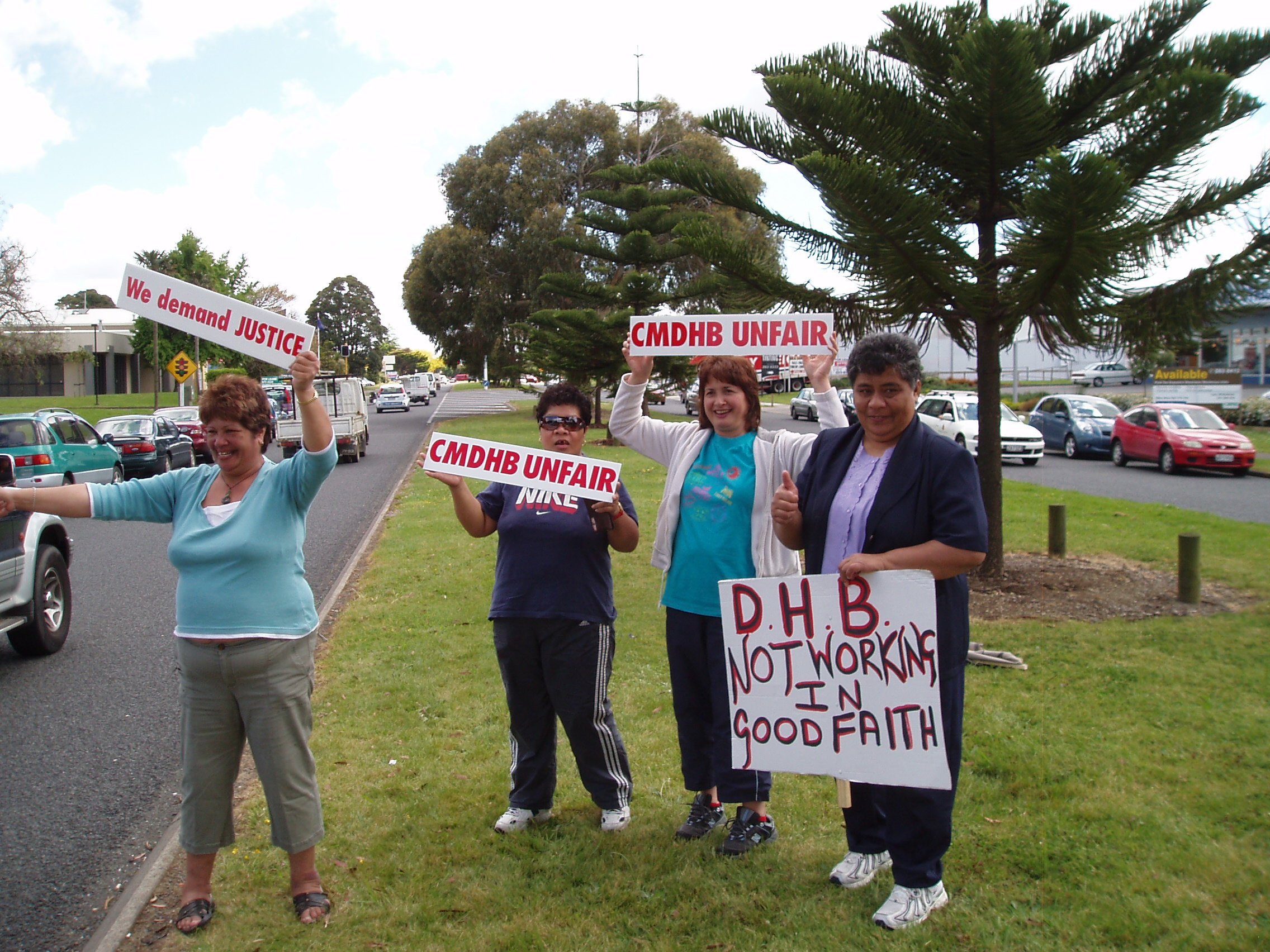Talk given by Workers Party Manukau East candidate Daphna Whitmore at an election meeting at Otahuhu College, Auckland 29 October 2008
I want to talk about law and order and police in South Auckland. The Workers Party believe we need fewer cops, not more cops as most of the parties are saying.
I work for a union that is organising worksites such as McDonalds.
For the past month McDonald’s workers have taking strike action. There have been over 40 strikes in the past 30 days. These McDonald’s staff work hard; they are on their feet all day and get just over $12 hour. It’s a poverty wage and the hours of work are uncertain, going up and down each week.
McDonald’s workers at Auckland Airport went on strike a couple of weeks ago. It was a perfectly legal strike and they stood outside in the carpark to hold a peaceful picket. But the security bosses at the airport tried to stop the strikers and called the cops who were there in minutes.


